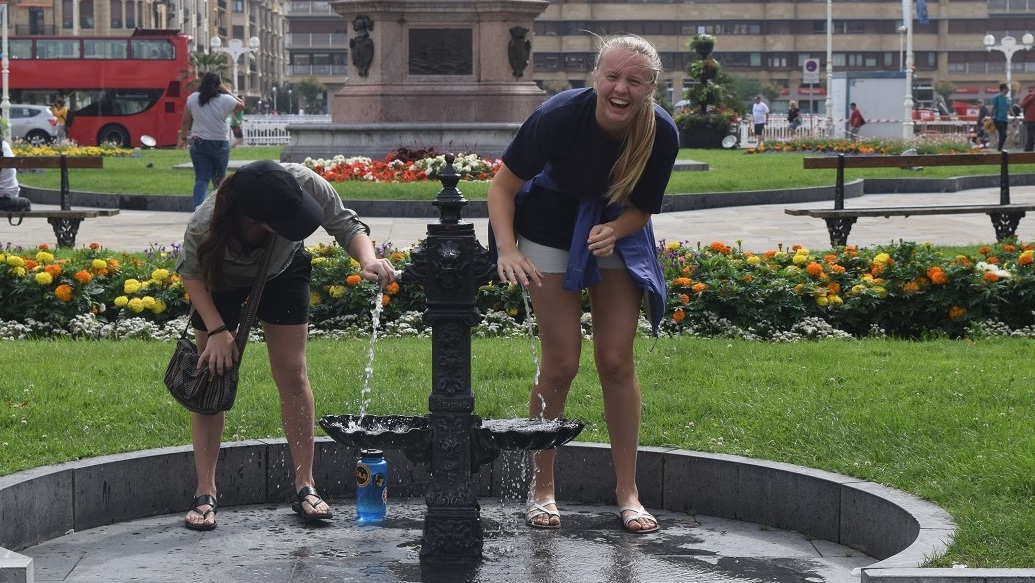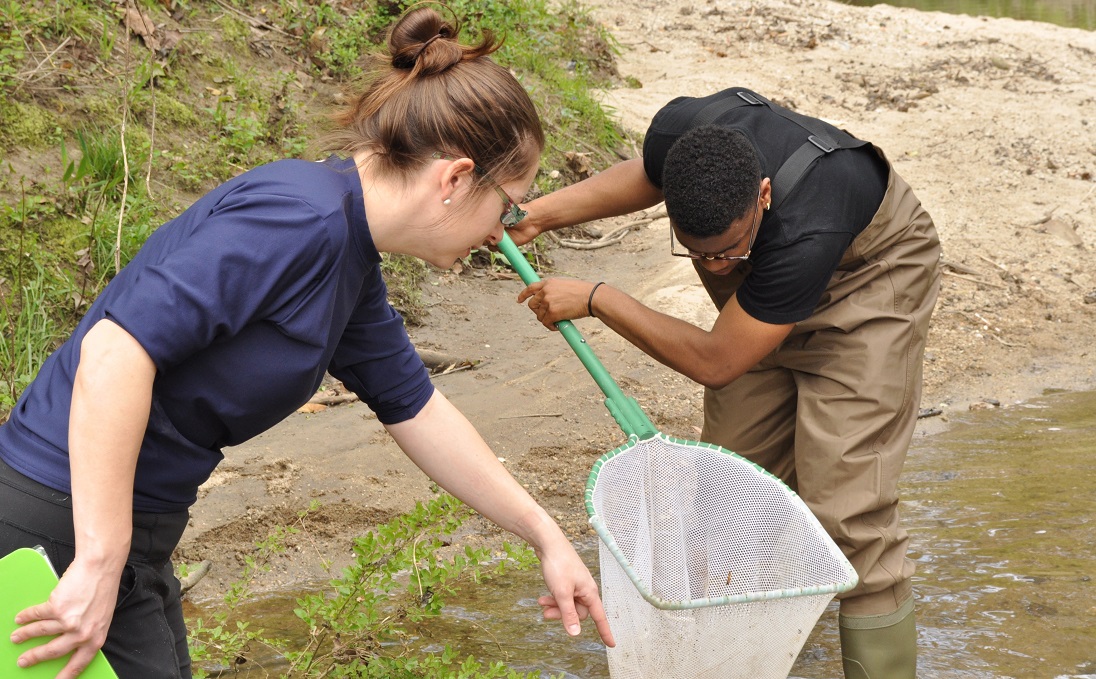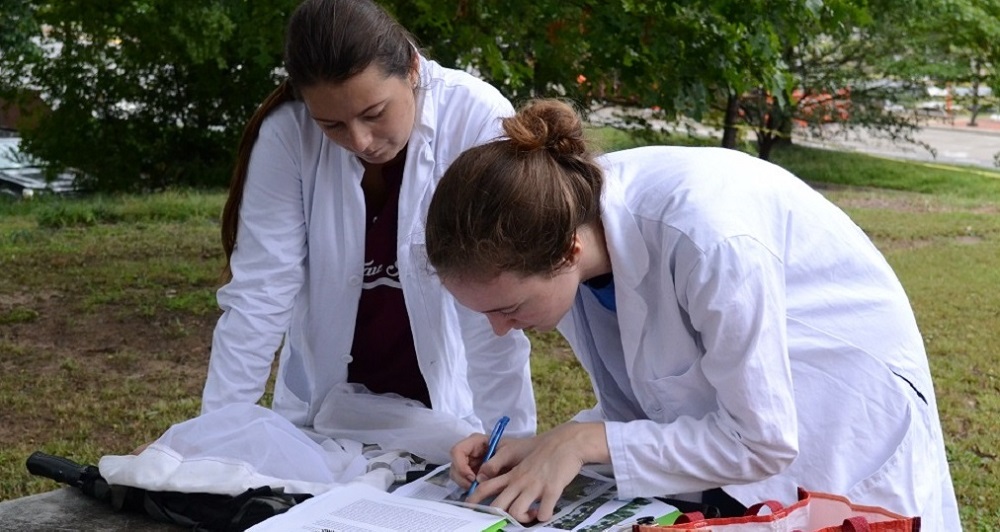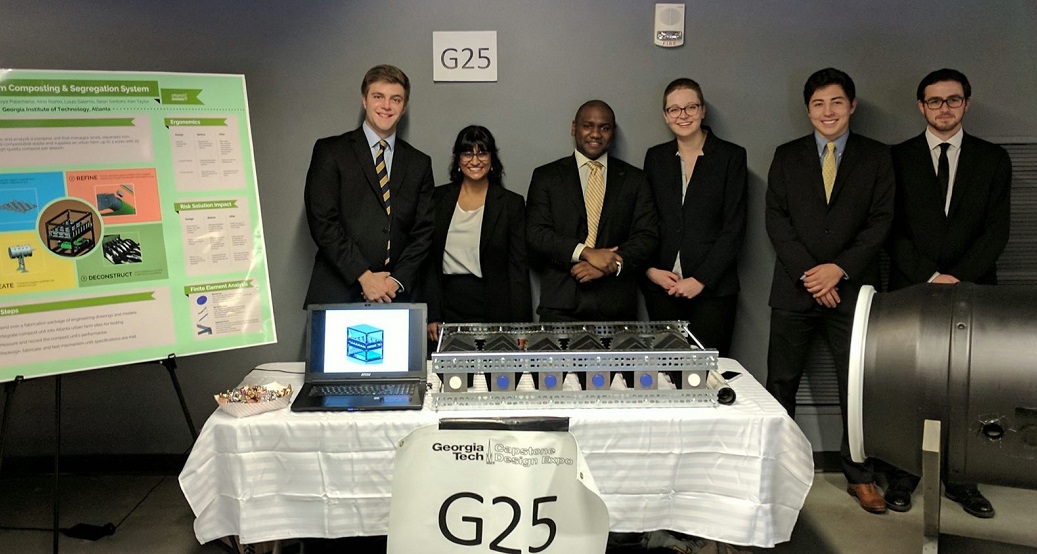Serve-Learn-Sustain is sunsetting its affiliated courses program as of Spring Semester 2024. Moving forward it will be possible to find information about sustainability-themed courses at this location https://sustain.gatech.edu/usec/. A dashboard is being developed to assist students with locating courses.
Remember that if you are contemplating a minor, take a close gander at the SLS-affiliated Sustainable Cities Minor! The minor in Sustainable Cities emphasizes sustainability, community engagement, and social justice. It provides students with a deep learning experience that integrates classroom learning and real-world, community-based project experience in creating sustainable communities, with a focus on the built urban environment. You can learn more about the minor, and all the details on how to integrate into your present course of study, by visiting SCARP’s information page. The course listing on that page will give you a sense of just how diverse the offerings are - from public policy, to computer science, to biology – there are courses across all six colleges that count toward this dynamic minor!
In the meantime, feel free to return to this page to find Regularly Offered Highlighted Courses- these courses will be those that wed sustainability themes and community-engagement, offering students a special opportunity to deepen their sustainability learning and extend their work beyond the classroom walls." Questions about locating sustainability or SDG oriented courses? Reach out to Ruth Yow (ryow6@gatech.edu), Kristina Chatfield (kchatfield30@gatech.edu), or Rebecca Watts Hull (rwattshull@gatech.edu).
Highlighted Courses
Ruth Yow and Rebecca Watts Hull
What kinds of knowledge, skills, and practices help people work together to transform society? Collective action enables groups of people to advance solutions to complex social and environmental challenges. In a democratic society, organized groups are better able to develop, articulate, and assert shared interests to advance equity, accountability, effectiveness, and sustainability in social institutions. Individuals and groups use similar strategies to advance social change within organizations, from universities to corporations and government agencies. What kinds of knowledge, skills, and practices help people work together effectively around a shared idea, concern, or interest? In this course we will explore social theory and community organizing frameworks that guide change agents on college campuses and within organizations and communities throughout the U.S. We will draw on these perspectives, along with case studies and Serve-Learn-Sustain community-based partner organizations, to understand and practice strategies and skills used to advance social change. Students will apply the knowledge and skills they develop and work with a community organizing mentor to create a plan of action for a positive social change on campus. Civic Georgia and other community-based organizations will share their experiences and help students understand connections between change-making on campus and in society more broadly.
Chen Zhou
This course applies economic and supply chain principles to products and service supply chains to serve human needs. Up to 40% of the course is a project. SLS helped to setup many projects to work on these supply chain issues have direct social impact: CARE in Georgia Tech to improve mental health services, with Community Farmer's Markets, Urban Recipe and Retaaza Fresh Food Forward to address food desert problems, Center for Sustainable Communities to reduce inequality and health through EcoDistrict Hampton Road project, Healthcare supply chain comparison to top performing countries.
Rosa Arriaga
In this course we work through the entire User Centered Design Cycle: requirements gathering, designing alternatives, prototyping and evaluation. We work on a project theme that matters to our community partners. Past community partners include The Atlanta Beltline, Atlanta Community Food Bank, Boys and Girls Club of Greater Atlanta, The Carter Center, United Way of Atlanta and their partner organizations. Most recently students considered accessibility and community engagement with the Historic Oakland Cemetery. This course provides an opportunity for reciprocal teaching and learning. The students learn about real world problems and the community members are exposed to novel ways of understanding the problem and novel approaches/designs to “solving” the problems.
Allen Hyde
The purpose of this course is to introduce students to the field of urban sociology by exploring the history and current conditions of cities. This course will be geared toward viewing the city as a simultaneously social, cultural, and political economic phenomenon, with particular attention to the following: a) urbanization and the structure of cities; b) suburbanization; c) sustainable urban growth and economics; d) race and segregation; e) immigration; g) culture; h) gender and sexuality; i) gentrification and housing policy; j) environmental justice; and k) sustainable communities. This class will give students a strong overview of some of the major issues related to urban life, politics, and economics. Typically, a community-engaged project will be one of the assignments, but the partners and project topics vary by semester.




